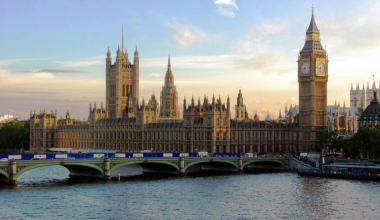Christopher Hitchens wrote an article in October 1992 for The Nation magazine in which he ran completely counter to left-wing orthodoxies on Christopher Columbus and his national celebration as the man who discovered America:
I can never quite decide whether the anti-Columbus movement is merely risible or faintly sinister. It is risible in the same way that all movements of conservative anachronism are risible, and reminds me of Evelyn Waugh’s complaint that he could never find a politician who would promise to put the clock back. It is sinister, though, because it is an ignorant celebration of stasis and backwardness, with an unpleasant tinge of self-hatred.
While there certainly are self-hating tendencies amongst parts of the Western left, Hitchens’s opening lines acted as a smear against all proponents of the anti-Columbus movement, without a consideration for its nuances.
It is well established that Columbus’s record in the Caribbean is a vile one. The Italian explorer, funded by the Spanish Crown, was sent westward with the purpose of finding a sea route to India. Columbus and the men on his expedition first came across what is now the Bahamas. They would also traverse across what would become Cuba, Haiti, and the Dominican Republic. The historical record shows that they murdered, raped, and tortured those who disobeyed them, as well as selling young girls into sexual slavery. Given these facts, it would seem more perverse to celebrate such a man and what he represented than to reject him, regardless of the claims of modernity and progress that are made in his name.
Quite aware of the crimes of the Europeans, and later Americans, Hitchens did not conceive of Columbus’s expedition as a moral act but as a crucial juncture in human history. On the morality of individual acts, he declared elsewhere that ‘History is more of a tragedy than it is a morality tale’. And so he went on to argue in his article that, ‘The Arawaks who were done in by Columbus’s sailors, the Inca, the Comanche and the rest were not the original but only the most recent inhabitants’. By positing the indigenous tribes in the Americas as just another group of recent settlers, Hitchens worked to present Columbus and his men as simply the most recent group of peoples to arrive, with the attendant crimes not of much consequence.
Hitchens went on to argue that deciding who arrived ‘first’ was a useless exercise and ‘it would be pointless except as a means to devalue the claims of those—some millions of Irish, English, German, Italian, Jewish and other refugee workers—who migrated across the Atlantic many years after at least some of the “natives” migrated across the Aleutian Island chain’. It is Hitchens, however, who served to devalue the claims of those who came before the Europeans, not simply a few years or decades before, as his words implied, but thousands of years prior.
Research by the University of Oregon reveals that the first humans moved into North America potentially as long as 20,000 years ago. The line tracing these people to what are called the native tribes of America prior to the arrival of the Europeans is not obvious, but it is clear that various people existed long before the men and women of the Old World arrived on their shores and that the destruction by disease and war of the native peoples was not only of immense consequence but also something more than simply a ‘tragedy’.
New research by anthropologists and archaeologists further proves our sheer level of ignorance when it comes to non-Western civilisations. In David Graeber and David Wengrow’s towering work The Dawn of Everything: A New History of Humanity (2021), the authors demonstrate that hundreds of cities, towns, and other human settlements existed in North America in the past several thousands of years, with complex, socially flexible societies, animated by the rituals, festivities, and norms, including extensive trade, which characterise all human civilisations. The early European, and predominant Western, conception that America was terra nullius was false. This notion, as in Australia, served simply to justify colonial violence and expansion. That it was done in such a backwards and racist age should not surprise us, but that it underpinned the argumentation of a man of the left as late as the 1990s should certainly aggrieve us.
The core of Hitchens’s argument rests on the contention that those in the anti-Columbus movement and critics of American history more broadly are reductionists who only see calamity. It is worth quoting from the article at length here:
But those who view the history of North America as a narrative of genocide and slavery are, it seems to me, hopelessly stuck on this reactionary position. They can think of the Western expansion of the United States only in terms of plague blankets, bootleg booze and dead buffalo, never in terms of the medicine chest, the wheel and the railway.
One need not be an automatic positivist about this. But it does happen to be the way that history is made, and to complain about it is as empty as complaining about climatic, geological or tectonic shift. Not all changes and victories are “progress.” The Roman conquest and subjugation of Britain was, I think, a huge advance because it brought the savage English tribes within reach of Mediterranean (including Ptolemaic and Phoenician as well as Greek and Latin) civilization, whereas the Norman Conquest looks like just another random triumph of might.
The very dynasty that funded Columbus put an end to Andalusia in the same year, and thus blew up the cultural bridge between the high attainments of Islamic North Africa and Mesopotamia and the relative backwardness of Castilian Christendom. Still, for that synthesis to have occurred in the first place, creating the marvels of Cordoba and Granada, wars of expansion and conversion and displacement had to be won and lost.
It is worth refuting each of these points in turn. The medicine chest, the wheel, and the railway benefited the Americans in their westward expansion, but it did no good for the populations who inhabited the land and were only pushed further into oblivion. Hitchens’s framing falsely implies an objective improvement which benefited all peoples. In addition, Hitchens’s contention about how history is made, with his analogy to climatic change, is obviously a fatuous one. Human agency and decision-making cannot be compared to climatic, let alone geological or tectonic, shifts. To do so imputes an inevitability to human actions which simply does not accord with reality.
Moreover, as Hitchens himself made clear in the examples he furnished his readers with, his theory of historical change was inherently subjective; he judged some conquests to be progressive while others were mere triumphs of might. There was no rigour in his approach and no means by which it could be decided which conquests would benefit humanity, certainly not at the time, so the purveyor of such a view necessarily has to argue his case ex post facto, that is, after the fact. By Hitchens’s own logic, if the Pilgrims in North America had failed by the 1620s this should have elicited no interest given their technological backwardness and their religiosity. It would not have been possible in other words to draw a straight line from the Pilgrims to the modern United States, and its framing today as such is necessarily undertaken after centuries have passed and the settlers expanded and succeeded.
Even if Hitchens’ theory of historical change held internal logical consistency, it would still have to be repudiated as a form of thinking since it obviously risks setting a murderous precedent in which present or future atrocities are justified with the promise of future benefit for a larger group of humanity. To show the absurdity of this type of reasoning, let us apply it in a modern context. In the case of Israel and Palestine, supporters of the former could point to Israel’s greater GDP, its technological advancements, and its ostensibly liberal, democratic society and claim it is superior to its Palestinian counterpart.
Hitchens was, of course, a supporter of the Palestinian cause, but by his own theory of historical change and progression, what would be objectionable about the Israelis killing the Palestinians, or at the very least driving them out into other countries, in pursuit of a Greater Israel? What differentiates an Israel animated by racism, expansionism, and religious fervour from the early European settlers and the then-burgeoning United States? In both examples, the more ‘advanced’ countries claim a divine right to the land and cast those they are dispossessing as backwards and savage.
What these arguments leave out is that such ‘progress’ is always at the expense of other people, who do not think of themselves as backwards and did not ask anyone else for their permission to exist. Hitchens’s final paragraph re-emphasised the point about conquerors having the potential to bring modernity to the lands and peoples they’ve subdued:
As Marx wrote about India, the impact of a more developed society upon a culture (or a series of warring cultures, since there was no such nation as India before the British Empire) can spread aspects of modernity and enlightenment that outlive and transcend the conqueror. This isn’t always true; the British probably left Africa worse off than they found it, and they certainly retarded the whole life of Ireland. But it is sometimes unambiguously the case that a certain coincidence of ideas, technologies, population movements and politico-military victories leaves humanity on a slightly higher plane than it knew before. The transformation of part of the northern part of this continent into “America” inaugurated a nearly boundless epoch of opportunity and innovation, and thus deserves to be celebrated with great vim and gusto, with or without the participation of those who wish they had never been born.
Hitchens’s callousness towards the indigenous peoples of the Americas, as opposed to his solidarity with the Palestinians, is likely only explained by recency bias. Hitchens could see and read and hear of those who had been dispossessed from Palestine. Many still held the keys to their parents’ and grandparents’ homes. The diaspora of Palestinians in other parts of the Middle East and in Europe and America told their stories and presented their case. It was and is real. The indigenous people of North America, however, were already lost, confined to a few reservations, and so their case was discarded. Such a distinction may be a practical one, but it is hardly a historical or moral one. What would Hitchens’s position have been in 1492 or 1662 or 1815 as Spaniards, Englishmen, and then Americans killed, plundered and raped their away across the Americas? Would his argument have retained any force? If not, then it holds no force now. The arbitrary determination of what is considered progressive renders this form of Marxist technological determinism sinister.
The preservation or death of a civilisation cannot be argued for on the basis of technological prowess or supposed moral rightness as it creates a future risk for our own societies. What precludes Europe or America from being justifiably conquered by the China of the future with its advancements in artificial intelligence, electric vehicles, and high-speed rail? Perhaps one could counter-argue that the West is freer than China and that the comparison does not hold. Well, to complicate the picture further, there is a steadily growing body of anthropological and historical evidence, adduced by Graeber and Wengrow, that demonstrates how various indigenous societies in North America possessed a better state of affairs when it came to equality among the sexes and that their social relations were much more flexible and egalitarian than those of the French and English settler societies.
In fact, what was remarkable in conversations between settlers, traders, merchants, and the indigenous populations was that both sides seemed to agree on the latter being freer people. As Graeber and Wengrow write, ‘That indigenous Americans lived in generally free societies, and that Europeans did not, was never really a matter of debate in these exchanges: both sides agreed this was the case. What they differed on was whether or not individual liberty was desirable’. The Western reader naturally hesitates at such a conclusion, but the authors go on to drive the point home and to explain what seems deeply counterintuitive:
Most of us simply take it for granted that ‘Western’ observers, even seventeenth-century ones, are simply an earlier version of ourselves, unlike indigenous Americans, who represent an essentially alien, perhaps even unknowable Other. But in fact in many ways, the authors of these texts were nothing like us. When it came to questions of personal freedom, the quality of men and women, sexual mores or popular sovereignty—or even, for that matter, theories of depth psychology—indigenous American attitudes are likely to be far closer to the reader’s own than seventeenth-century European ones.
Therefore, even the claim to greater personal freedom by the West is now contested. In any case, the values we now venerate are not what won the land. It was, to borrow from Jared Diamond, guns, germs, and steel which won the continent for the Europeans and Americans.
In a talk discussing his book on Thomas Jefferson in 2005, Hitchens identified a ‘strain’ of the left which he thought was the most reductionist about US history. Speaking specifically of Noam Chomsky, Hitchens commented, ‘he did not finally think that the United States of America was a good idea. He thought it had been, sort of, all genocides since Columbus basically, that’s not simplifying his opinion by very much’. Hitchens speculated about the implications of this worldview as he saw it, stating, ‘there are times when it can have significance, if you basically think the United States is a bad idea, then you may feel a sneaking sympathy for others who feel the same, such as, for example, theocratic nihilists, who believe it’s a crusader Jewish racket’.
Whatever one’s thoughts on Chomsky, to implicate him as an ally or sympathiser of antisemitic Islamist terrorists, is absurd. Chomsky’s atheism and anarchism by definition repulse him from such allyship. Not to mention, if one wants to know Chomsky’s view, it is very easy to find out. In an interview with the writer Yascha Mounk, Chomsky stated, ‘One of the good things about the United States is that it’s a very free and open society’. In another interview with Spiegel International, he said, ‘In many respects the United States is a great country. Freedom of speech is protected more than in any other country. It is also a very free society’. These sentiments are hardly redolent of a sympathiser of al-Qaeda or the Taliban.
Ultimately, one cannot, of course, condemn Hitchens for being unfamiliar with anthropological and archaeological literature which did not yet exist, nor should one misunderstand his desire to defend a country and freedoms he thought worth protecting. However, one can identify how his theory of historical change and progress was deeply flawed, riddled with logical faults and moral failings. The cruel moral calculus of deciding which deaths and destructions are worthwhile for the onward march of history undergirds the most authoritarian and bloody tendencies in human thought, and it should be rejected outright.
Related reading
Israel’s war on Gaza is a war on the Palestinian people, by Zwan Mahmod









Your email address will not be published. Comments are subject to our Community Guidelines. Required fields are marked *
Donate